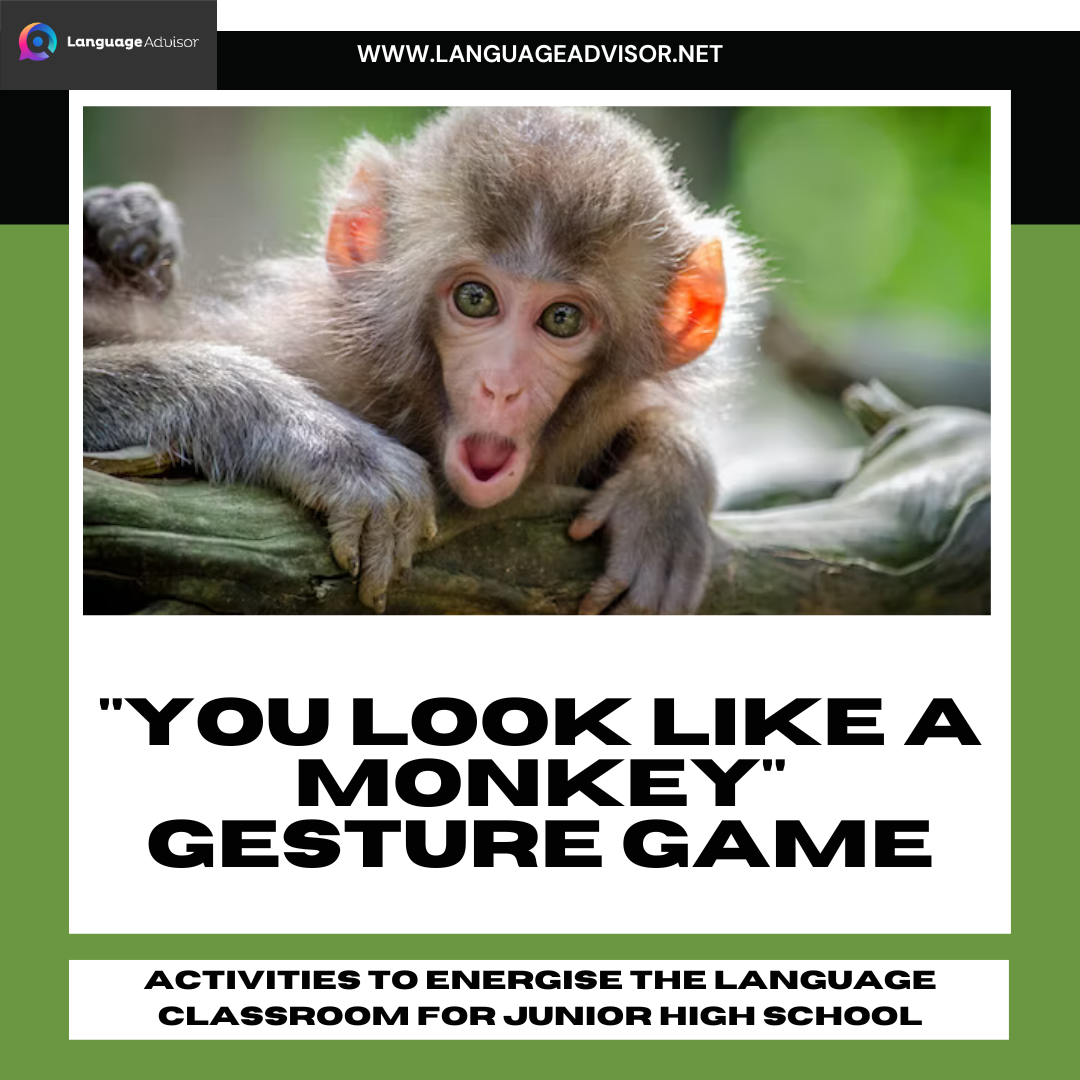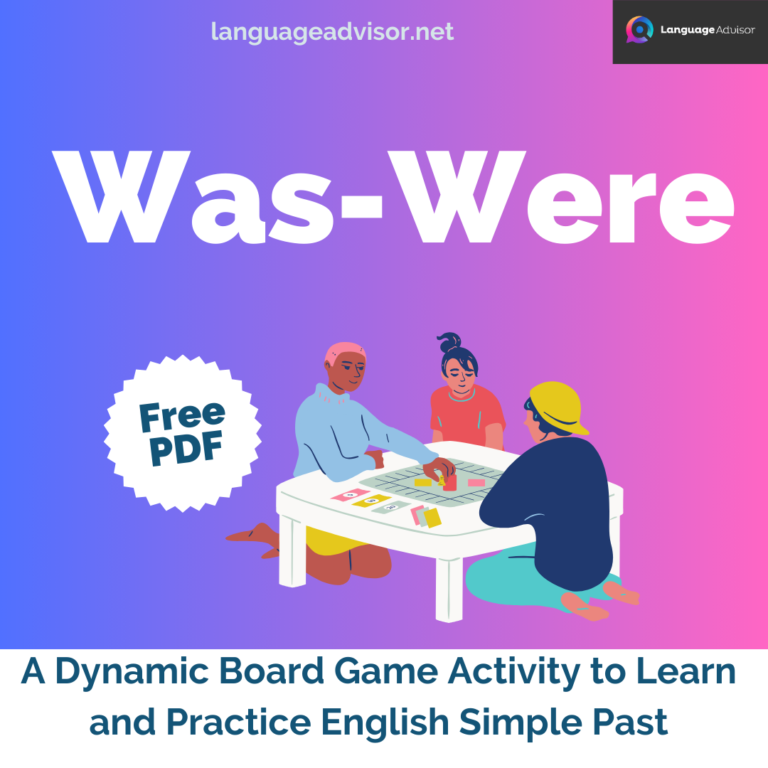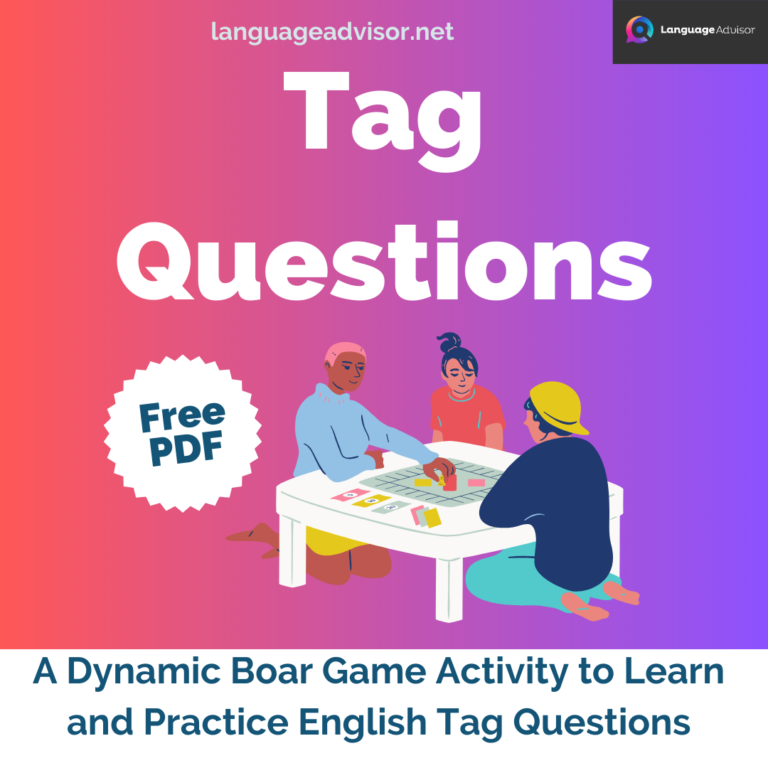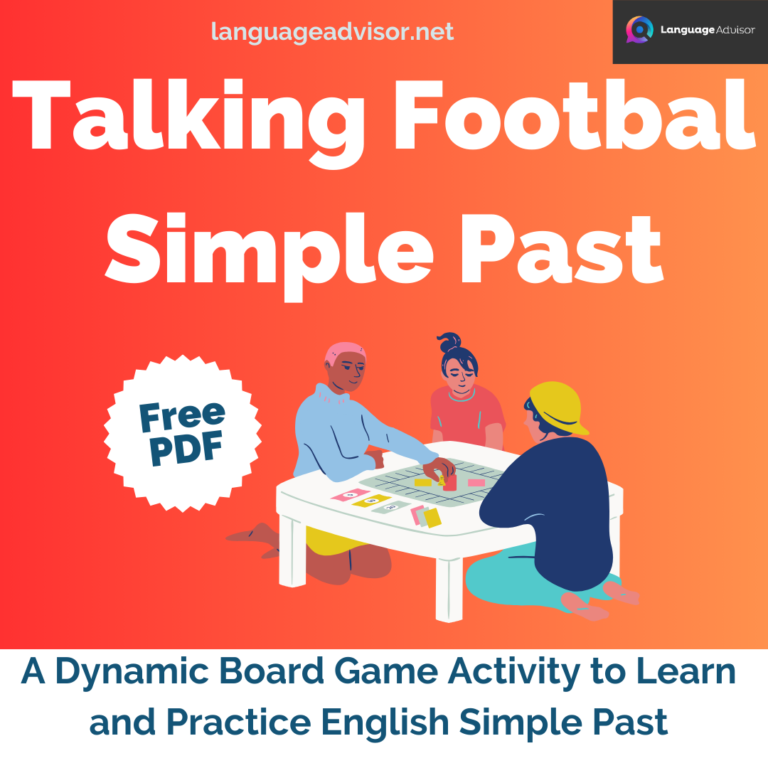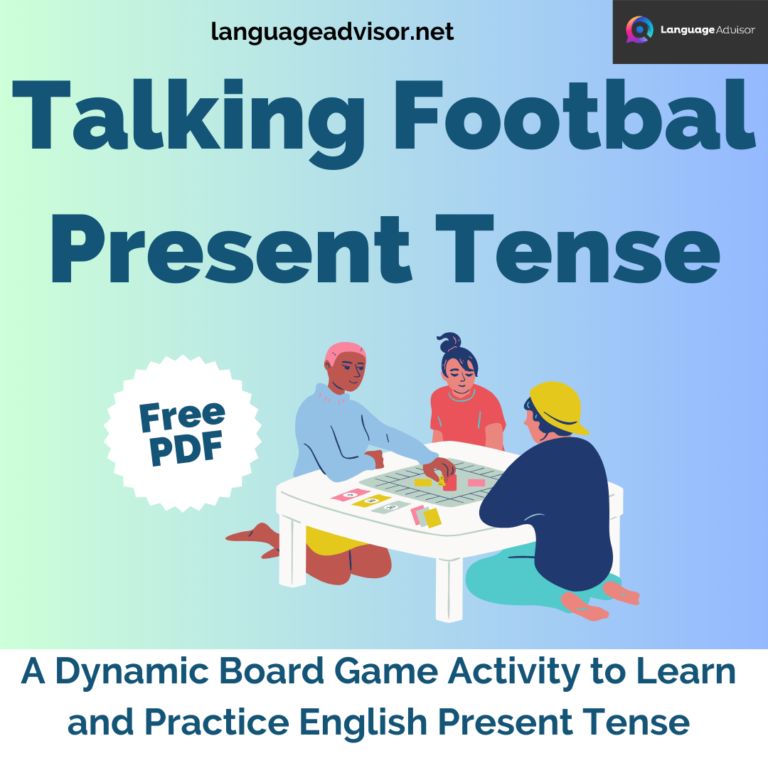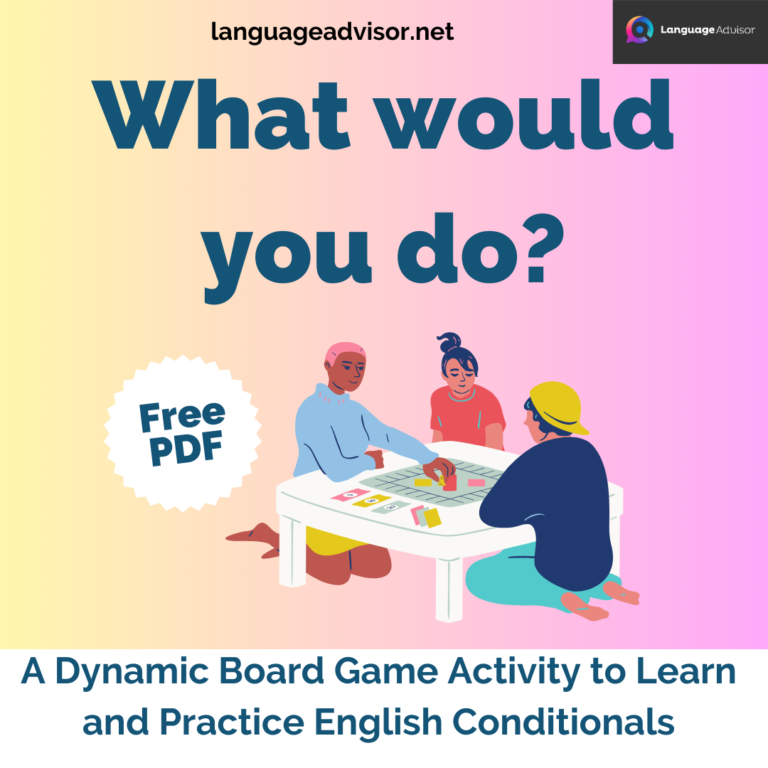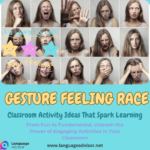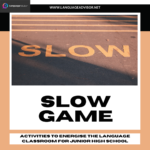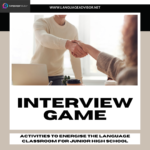“YOU LOOK LIKE A MONKEY” GESTURE GAME. Games and Activities to Energise the Language Classroom for Junior High School
“YOU LOOK LIKE A MONKEY” GESTURE GAME

Energising Language Classroom Activities for Junior High School: A Teacher’s Guide
Junior high school students often find language classes challenging, but as a language teacher, you have the power to transform these challenges into engaging learning experiences. Classroom activities are the key to achieving this transformation. These activities not only make learning enjoyable but also foster a deeper understanding of the language, leading to improved fluency and proficiency. In this blog post, we will explore a diverse range of innovative and interactive language classroom activities designed specifically for junior high school students. Whether you’re looking to enhance vocabulary retention, boost conversational skills, or make grammar lessons more enjoyable, this guide will provide you with a rich array of strategies to create a dynamic and effective learning environment for your students. Let’s embark on this journey to energize your language classroom and inspire your students to become passionate language learners.

“YOU LOOK LIKE A MONKEY” GESTURE GAME
Target Group: 2nd year
Difficulty Level: Basic Conversation
Activity Objective: To practice using the grammar point, “You look (sleepy)”/”You look like a (pro wrestler).”
“YOU LOOK LIKE A MONKEY” GESTURE GAME – Procedure
This activity is meant to help students practice speaking. Students will form groups of four and take turns trying to correctly guess each other’s gestures while using the grammar point. In each group, students should decide the order in which they will take their turns. The teacher will provide each group with fifteen slips of paper containing different adjectives and nouns, placed face down in the center of the desks.
Here are the rules:
- Only one student at a time may look at a slip of paper and act out the gesture.
- The student should not speak but use gestures to help the others in the group guess the answer.
- When a student in the group correctly guesses the answer, they keep the slip of paper, earning one point.
- To receive the point, the student must correctly use the grammar point.
- The student who answers the most clues in their group wins.
The game can have a set time limit or be played until all groups have finished. Before starting the game, the teacher should provide a demonstration to ensure students understand how to play. The teacher can choose a clue, use gestures, and have the students guess the answer.
Materials and Preparation
You will need paper and a pair of scissors.
For this activity you will need to make a list of fifteen or more adjectives and nouns. For example, an appropriate adjective would be “sleepy” and an appropriate noun would be “sumo wrestler.”
Because there are many groups and multiple copies are needed, it is best to type out the words on a computer and print enough copies so that each group has their own set of clues. However, if you do not have access to a computer, words can be hand written as well. Cut the list of words up into
individual slips of paper so that there is one word or clue on each slip of paper.
Suggestions and Advice
Since there are many students, it is important to walk around the classroom and check that students are following the rules. Depending on the energy or motivation of the class, the groups can be made larger and compete against each other. For example, instead of the students competing within their group, they can compete against the other groups to see which group can finish first.

Energising Language Classroom Activities for Junior High School
In the world of language teaching, fostering a love for learning and effective communication is our ultimate goal. By implementing these engaging classroom activities for junior high school students, you are not only enhancing their language skills but also creating an environment where curiosity, creativity, and enthusiasm thrive. As we wrap up our exploration of these energizing language activities, remember that your role as a teacher is invaluable, and your dedication to making language learning exciting and impactful is what sets the stage for your students’ future success.
So, continue to innovate, adapt, and personalize these activities to suit the unique needs and interests of your students. Watch as their confidence soars, their vocabulary expands, and their ability to communicate fluently grows. With your guidance and these engaging activities in your teaching toolbox, you are well on your way to inspiring a new generation of confident and capable language learners. The journey to language proficiency may be challenging, but with your passion and these activities, it is always an exciting one.
Happy teaching!

Also check out these articles on teaching, teaching methods and teaching tools


